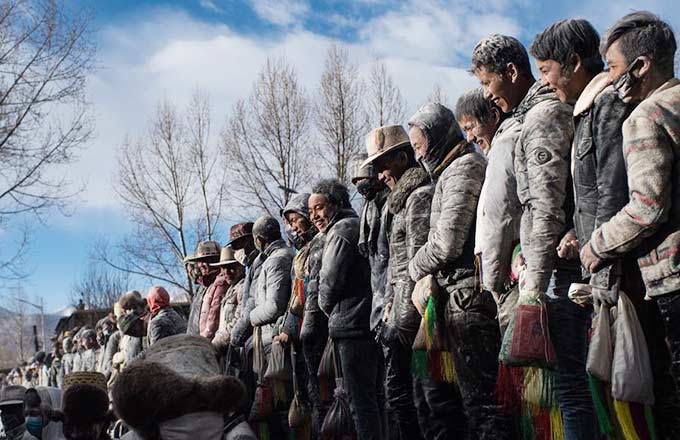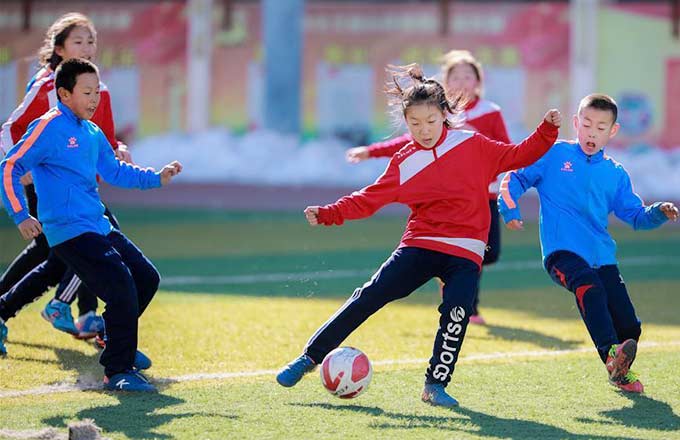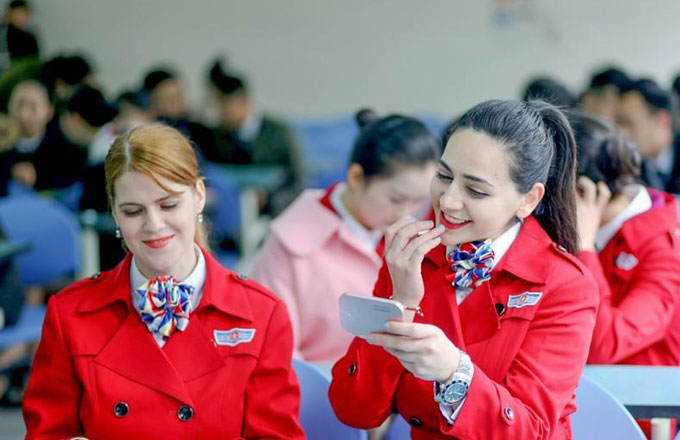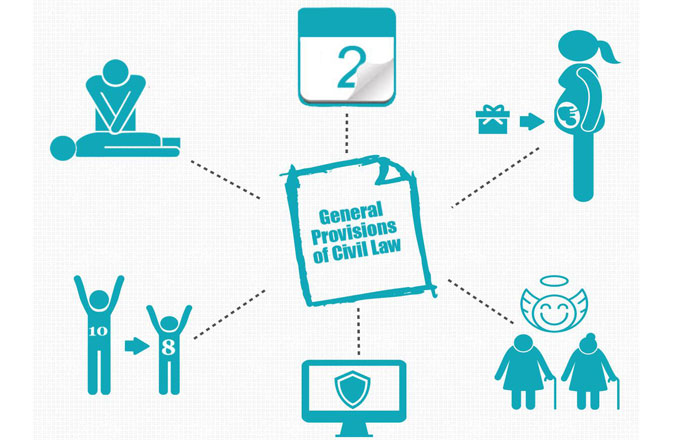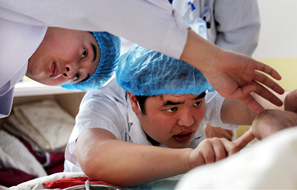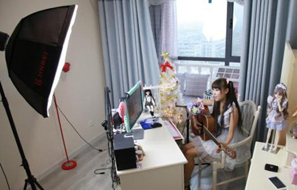Life resumes in 'isolated island'
Four days after the quake, survivors forced to flee their homes find hope in the struggle to recover, Tang Yue reports in Baoxing, Sichuan.
In normal times, it's the scene of cries and hurrahs, a field of combat for 22 players as two sides attempt to gain victory in 90 minutes.
But these are not normal times, and today the soccer field at Baoxing Stadium is home to nearly 4,000 people, united in their battle against a common enemy and with no idea how long this "game" will last.
Baoxing county was dubbed "the isolated island" after a magnitude-7 earthquake struck neighboring Lushan county on Saturday morning, and with good reason. The road from Lushan was blocked by landslides and since the quake, residents have been engaged in the almost Sisyphean task of clearing the road only to find it blocked again by further landslides. The road is the only supply route, so it must be kept open. To add to the isolation, the telephone signal to many towns was lost until 4 pm on Monday.
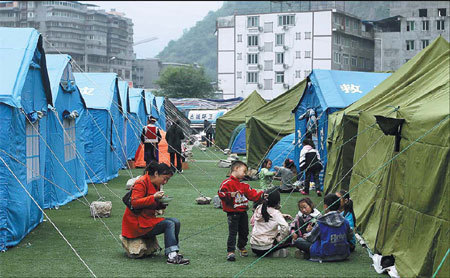 |
|
Displaced residents of Baoxing county in the tent city at the local stadium. Photos by Wang Jing / China Daily |
At the latest count, the earthquake is known to have claimed 26 lives and injured 2,500 people in Baoxing. Residents have been warned not to go back to their homes until the houses have been checked by professionals and the all-clear has been given.
The stadium, the largest open space in town, quickly turned into a Noah's Ark on Saturday as more than 2,000 residents rushed inside to set up tents and temporary shelters. A few hundred managed to secure spaces in the stands. The arena is now the largest of four temporary settlements in the county seat, providing a home to residents, rescue teams, volunteers and the media.
At 6:30 pm on Monday, night had started to fall as Su Zhengrong chatted with friends after dinner. Although Su and the other residents face difficulties and inconveniences, the 42 year old also has a source of inner joy; she is seven months pregnant.
Su's 18-year-old son has been seriously ill for some time and so last year she decided to have another baby. "It was not easy to conceive at my age. I feel extremely lucky that the baby is fine, even though I fell down when the earthquake happened," she said with a smile, despite the bruises on her right elbow and knee.
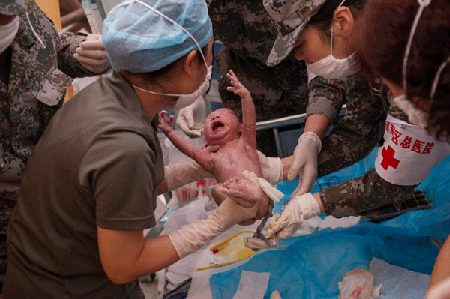 |
|
The birth of Chen Qirui in a makeshift medical tent cheers people in quake-hit Taiping township, Sichuan province, on Tuesday. Chen Cheng / Xinhua |
Since the quake, Su and three friends have been cooking on a portable gas stove donated by a relative who runs a restaurant. They clubbed together and put all their vegetables and meat into a communal pot to make a dinner consisting of steamed dumplings, rice porridge and pork soup.
Su's family - husband Zhu Fangang and their son - shares a 20-square-meter tent with five other families, 16 people in total.
For fear of the damp and the coldness of the ground, Su's husband took a risk and rushed into their apartment early on Monday to retrieve a large sofa cushion, which now serves as a mattress for Su.
"But a shower is forecast for tonight and I am afraid the ground won't drain efficiently," she said.
Lack of comforts
Its location in the valley means that Baoxing is shrouded in fog during the day, while the evenings are damp. The air carried a mixed smell of all kinds of food, petrol fumes from cars and the diesel fuel used to power generators.
Across the track from Su, around 50 people had gathered below a small television set on a stand. It was showing Sichuan TV; the station's output was dominated by news of the aftermath of the quake, but it also included footage of President Xi Jinping in Beijing, welcoming a number of newly appointed foreign ambassadors to China. The president referred to the earthquake and relief efforts several times in his speech.
Only those near the TV could really hear what was being said. The news station was drowned out by the sound of people talking, babies crying or laughing, the wail of sirens from military vehicles and ambulances and the background noise of the generators.
A collie dog was sniffing around by the stand and occasionally we saw a few patrol dogs passing, accompanying teams of rescue workers. None of the animals emitted so much as a whimper.
Life in the stadium is different from being at home, of course. It lacks all the conveniences people have come to take for granted; comfortable sleeping arrangements and ease of cooking, bathing and even recharging cell phone batteries.
Wherever you see a dozen people sitting in a circle on the ground or in the stand, they will be recharging their cell phones at one of the power strips set up at certain points. Waiting for a power point to become free can take a long time, sometimes even longer than it takes to reach the stadium's public toilets in the morning.
To help people pass the time, every tent has been issued with a copy of a magazine called Middle-aged Reader, carrying content ranging from "Details of Hong Kong" to reflections on life and death by a 106-year-old man and, most bizarre of all, a feature on the protocol used by the Prime Minister of Denmark when she wants to visit the doctor.
However, life in unusual circumstances doesn't really change one's nature. Rather, the experience reveals who you really are.
Against this noisy background, Wang Shixu was sitting by the running track, bathed in the glow of the floodlights, which are kept on all night, and reading a book. She had got through 132 pages that day alone.
The 10-year-old girl is such a bookworm that when her father went back to their apartment to retrieve a few necessities to relieve the tedium of sleeping in the family car, Wang asked him to also bring her collection of Sherlock Holmes stories.
On Saturday, Wang woke early. She was lying on her bed on the fifth floor of the family home, reading a novel featuring animals when "the building started to shake". "I ran downstairs so quickly that my father only managed to grab me when I reached the third floor," she recalled.
"During the day, I can concentrate on reading or playing around, but when it gets dark, the moment of the earthquake sometimes flashes back and it's terrifying," she said.
Her father, Tsering Dorje, plans to send her back to their home in Qiaoqi town, less than 60 km north of the county seat, where her mother works as a doctor. The little girl will leave once the road is safely passable again.
"The situation is better there and our old house is OK. I hope her life can return to normal soon," said her father, who teaches history at Baoxing Hainan High School.
"But I think living like this for a few days will make her stronger. She has never washed her face in cold water before, but now there's no other option."
The national gaokao, China's college entrance exam, is just six weeks away, but Asiman is not worried. That's not misplaced confidence, however - she is ranked in the middle of her class - but Asiman said nothing can frighten her now after the terrible disaster.
- Anxious wait for milk powder
- Response to quake 'better than' 2008 in Wenchuan
- Medical personnel provide assistance with little rest
- Condolences continue to flow in after earthquake
- More than 3,600 Sichuan aftershocks recorded
- 2 aid teams from Singapore deployed in Sichuan
- Quake-hit region faces new threats





